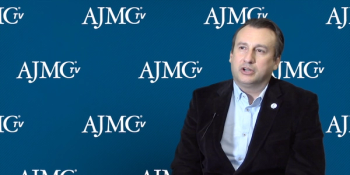
There has been significant improvement in payers' understanding of site of care issues, but steps still need to be taken to address these issues, said Lucio Gordan, MD, president and managing physician at Florida Cancer Specialists.

There has been significant improvement in payers' understanding of site of care issues, but steps still need to be taken to address these issues, said Lucio Gordan, MD, president and managing physician at Florida Cancer Specialists.
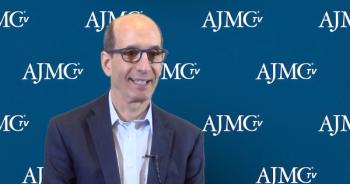
Co-pay accumulator adjustment programs can have different effects for individuals with varying health plan types or income levels, explained Bruce Sherman, MD, chief medical officer of the National Alliance of Healthcare Purchaser Coalitions.
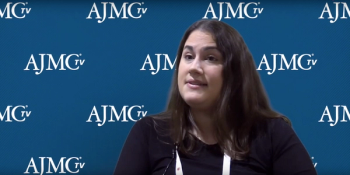
Some of the best ways to assess minimal residual disease (MRD) are using flow cytometry or using sequencing, said Elisabet Manasanch, MD, assistant professor in the Department of Lymphoma/Myeloma and Division of Cancer Medicine at The University of Texas MD Anderson Cancer Center.

Ongoing studies are aiming to determine how co-pay accumulator adjustment programs affect individuals’ medication adherence and persistence, with the hope that the results will inform employers on more equitable benefits strategies, according to Bruce Sherman, MD, chief medical officer of the National Alliance of Healthcare Purchaser Coalitions.
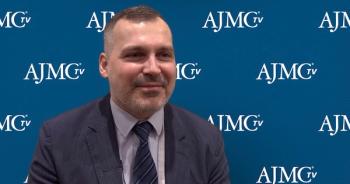
More data is needed to get wider acceptance of the use of palliative care services for patients with blood cancers, said Adam Olszewski, MD, associate professor of medicine at The Warren Alpert Medical School of Brown University.
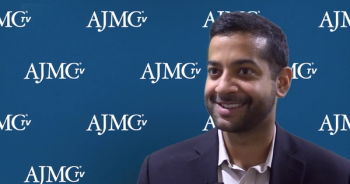
Education efforts among providers, payer, and patients can help answer the fundamental and important questions raised by the use of real-world data, said Viraj Narayanan, MBA, vice president of Life Sciences at COTA Healthcare.
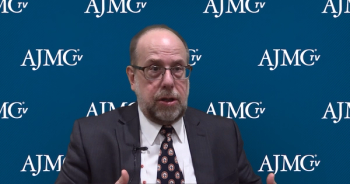
Medicare patients' health care utilization, including hospitalizations and emergency department visits, decreased after CAR T-cell therapy, said Karl Kilgore, PhD, senior research analyst at Avalere Health.
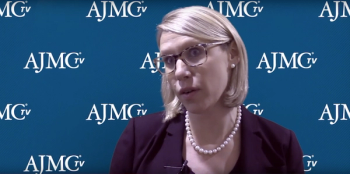
When we looked at the pre-treatment creatinine data, we found that African Americans were more likely to have abnormal results and white patients were more likely to have normal results–these differences were statistically significant, said Abby Statler, PhD, MPH, MA, research associate at Cleveland Clinic.

Co-pay accumulator adjustment programs will probably not be used for high-cost therapies because deductible amounts are trivial compared with their price tags and because these novel treatments are used for small populations, said Bruce Sherman, MD, chief medical officer of the National Alliance of Healthcare Purchaser Coalitions.

Fragmentation in the US healthcare system hinders implementation of efficient workflows when it comes to real-world data, said Viraj Narayanan, MBA, vice president of Life Sciences at COTA Healthcare.

Our outcomes suggest that eligibility criteria for patients with MDS relevant to liver function, renal function, and comorbidities may be relaxed, especially for those who have minor renal function abnormalities who have shown to have similar clinical outcomes to those without such abnormalities, said Abby Statler, PhD, MPH, MA, research associate at Cleveland Clinic.
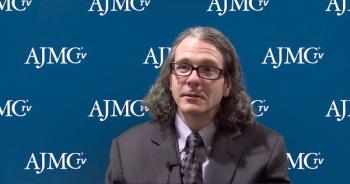
Patients with sickle cell disease already face suspicion and biases based on their need for opioids, and African American patients also face additional racial biases, said C. Patrick Carroll, MD, director of psychiatric services, Sickle Cell Center for Adults, associate professor of psychiatry, Johns Hopkins Medicine.

According to Bruce Sherman, MD, chief medical officer of the National Alliance of Healthcare Purchaser Coalitions, there are several ways that employers can alleviate the impacts of co-pay accumulator adjustment programs on their employees, including by increasing awareness of the programs, expanding preventive drug lists, subsidizing benefits for low-income workers, and considering the true financial impact of these programs.
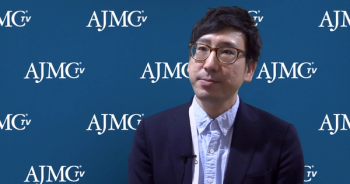
Predicting T-cell toxicity is a key factor when it comes to successfully using CAR T-cell therapy, said Reona Sakemura, MD, PhD, postdoctoral researcher at the Mayo Clinic.

Real-world data can help resolve some challenges commonly faced in clinical trails, said Viraj Narayanan, MBA, vice president of Life Sciences at COTA Healthcare.

Evidence is showing that early palliative care can be beneficial for patients with blood cancers, who receive very intense treatments that impact quality of life, said Adam Olszewski, MD, associate professor of medicine at The Warren Alpert Medical School of Brown University.

Bone marrow derived cancer-associated fibroblasts promote tumor progression which can alter a treatment's course, said Reona Sakemura, MD, PhD, postdoctoral researcher at the Mayo Clinic.
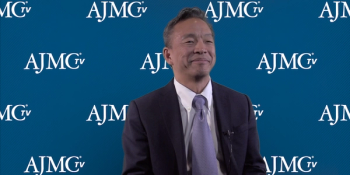
GUARD-AF is an example of the commitment of the BMS, Pfizer Alliance in trying to further the standard of care in patients with atrial fibrillation, said Roland Chen, MD, MS, vice president and head of clinical development for innovative medicines at Bristol-Myers Squibb.

Instead of replacing clinical trials, real-world data will be used to supplement traditional clinical trial information, said Viraj Narayanan, MBA, vice president of Life Sciences at COTA Healthcare.

There is not a lot of evidence on how well nonpharmacologic treatments work to treat sickle cell disease–related pain, and it can be difficult to get people access to these treatments, said C. Patrick Carroll, MD, director of psychiatric services, Sickle Cell Center for Adults, associate professor of psychiatry, Johns Hopkins Medicine.

While co-pay accumulator programs may appear to save employers money, they may lead to medication nonadherence if a prescription becomes too expensive for a patient to fill, which could potentially result in higher expenditures, cautioned Bruce Sherman, MD, chief medical officer of the National Alliance of Healthcare Purchaser Coalitions.

Ibrutinib quickly became the de fact standard of care to treat chronic lymphocytic leukemia, but the high price presents a problem for the US healthcare system, said Adam Olszewski, MD, associate professor of medicine at The Warren Alpert Medical School of Brown University.

Toxicities like cytokine release syndrome, along with other factors, limit widespread use of CAR T-cell therapies, said Reona Sakemura, MD, PhD, postdoctoral researcher at the Mayo Clinic.

The integration of real-world data into clinical research may mark a shift away from clinical trial information, said Viraj Narayanan, MBA, vice president of Life Sciences at COTA Healthcare.
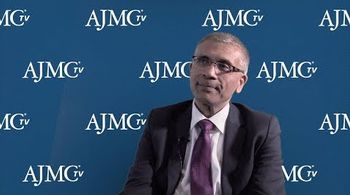
Improving recognition of the link between heart failure and diabetes can promote preventive care for at-risk patients, said Javed Butler, MD, MPH, MBA, professor of physiology and chairman for the Department of Medicine at the University of Mississippi.

Patients had never been particularly enthusiastic about using opioids to treat their pain related to sickle cell disease, but they are more cautious now, especially as they are often meet with suspicion of addiction, said C. Patrick Carroll, MD, director of psychiatric services, Sickle Cell Center for Adults, associate professor of psychiatry, Johns Hopkins Medicine.

Co-pay accumulator adjustment programs are meant to ensure that individuals are responsible for the full amount of their insurance deductible, which should help promote healthcare consumerism, according to Bruce Sherman, MD, chief medical officer of the National Alliance of Healthcare Purchaser Coalitions.

Managing people with sickle cell disease and complex chronic pain is difficult and requires some trial and error, said C. Patrick Carroll, MD, director of psychiatric services, Sickle Cell Center for Adults, associate professor of psychiatry, Johns Hopkins Medicine.

As new therapies come to market for pediatric acute myeloid leukemia, there will be a lot of questions to answer regarding dosing and where these drugs are used in the patient journey, said Sarah Tasian, MD, attending physician in the Division of Oncology at Children’s Hospital of Philadelphia.
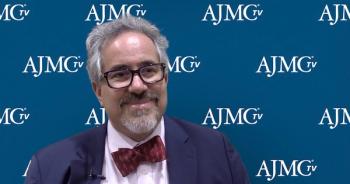
Patients with myelofibrosis can see their quality of life impacted in a range of ways with various symptoms, said Ruben Mesa, MD, director of UT Health San Antonio MD Anderson Cancer Center.

259 Prospect Plains Rd, Bldg H
Cranbury, NJ 08512
© 2025 MJH Life Sciences®
All rights reserved.
